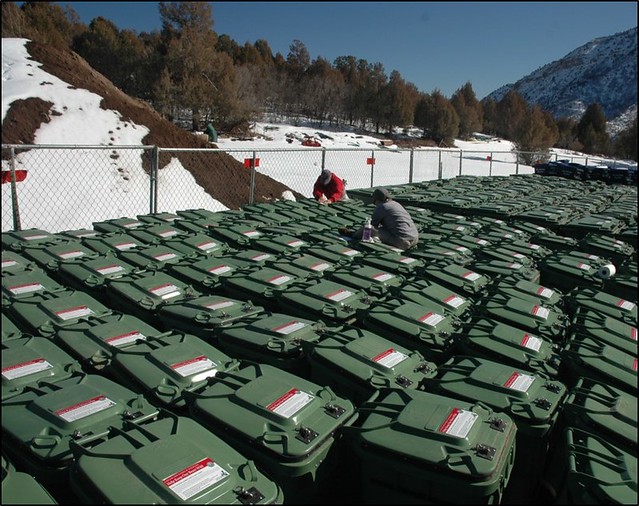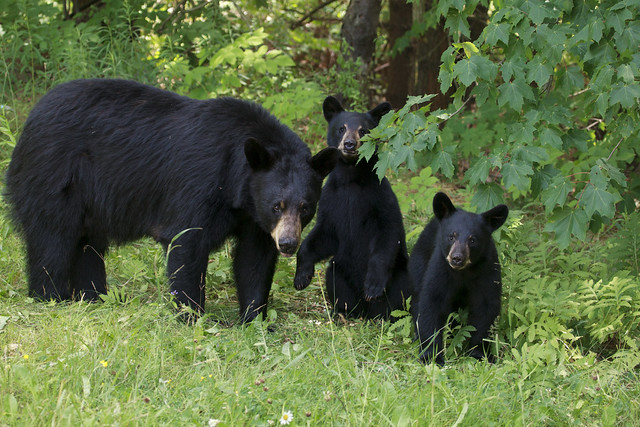
Like the famous cartoon character Yogi Bear, black bears are quick to take advantage of food left out by people. Black bears forage on garbage, bird seed, dog food, and other food items commonly found around homes and businesses. This has led to an increase in conflicts between bears and people in cities and towns across America. Unfortunately, these conflicts often end badly for the bears with many being killed or moved to prevent injuries to people and property damage.
To help address these issues, researchers with USDA-APHIS Wildlife Services’ National Wildlife Research Center (NWRC) partnered with Colorado Parks and Wildlife to evaluate whether the use of bear-resistant trash containers in Durango, Colorado, could reduce bear-human conflicts in the mountain town.
“The changes we observed were immediate once residents starting using bear-resistant trash containers,” states NWRC research wildlife biologist Dr. Stewart Breck. “We divided the town into two treatment and two control areas for comparison. The residents in the treatment areas received bear-resistant containers free of charge, while residents in the control areas continued to use their own trash containers. Trash-related conflicts were 60 percent lower and compliance with local wildlife ordinances increased 39 percent in the areas with bear-resistant containers.”
Researchers recommend that municipalities within or adjacent to bear habitat consider bear-proofing measures, such as providing residents with bear-resistant trash containers, implementing bear-proofing ordinances or regulations, and increasing the enforcement of existing regulations.
“Simple changes in human behavior can reap big benefits,” notes Breck. “If people keep their trash and other potential food items, like birdseed and dog food, off limits to bears, not only will they protect their homes and property from bear damage, but they’ll also protect bears.”
For more information on this study, please see Assessing Ecological and Social Outcomes of a Bear-Proofing Experiment (PDF, 6 MB) in the Journal of Wildlife Management.
NWRC is the research arm of APHIS’ Wildlife Services program. Its mission is to use scientific expertise to help reduce human-wildlife conflicts related to agriculture, natural resources, property, and human and health and safety. For more information, please visit our National Wildlife Research Center website.

